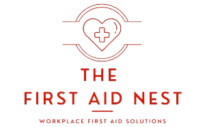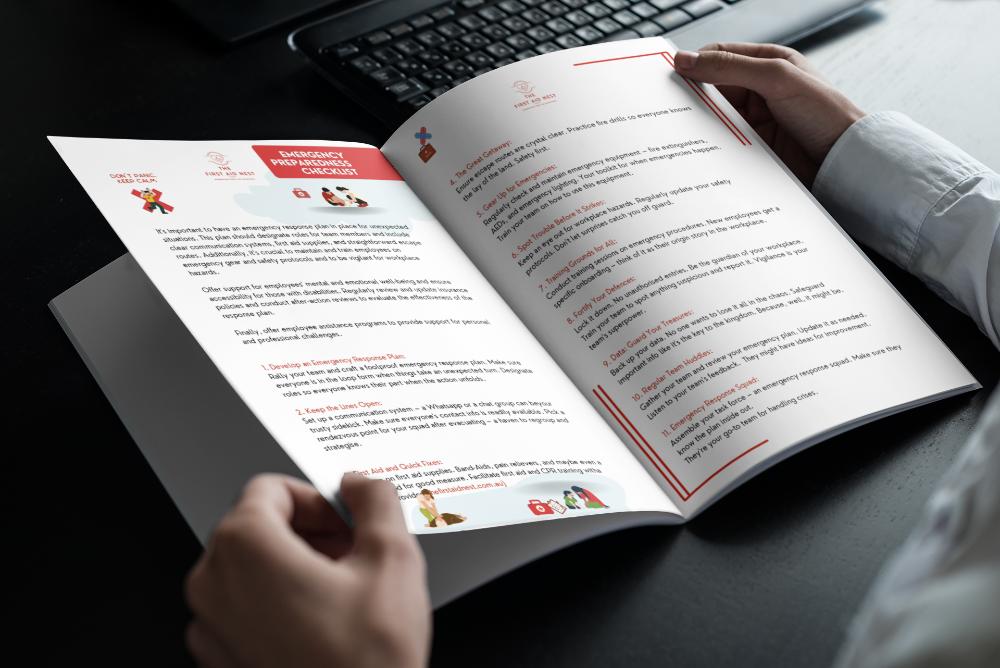Senior Safety: First Aid for Older Adults
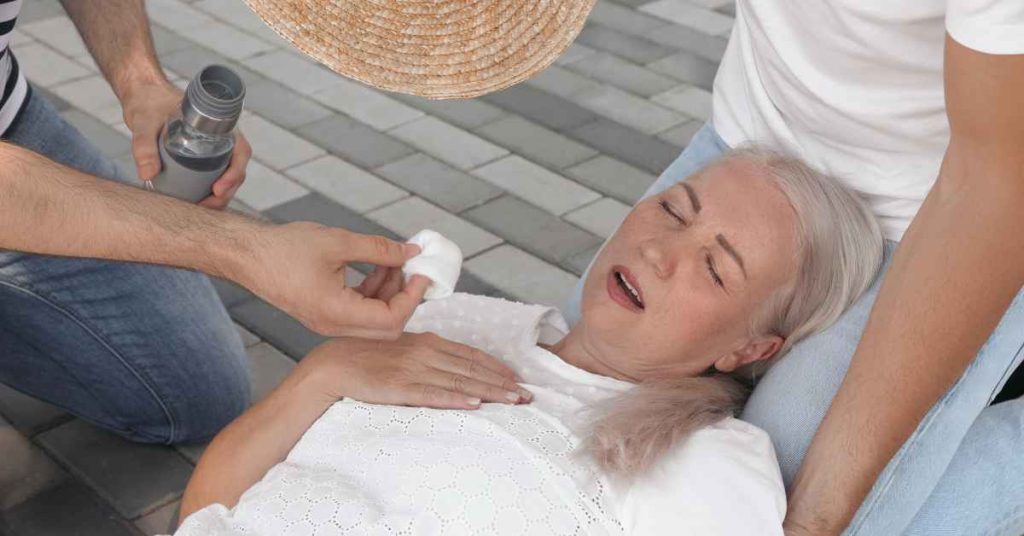
The significance of first aid knowledge becomes even more paramount when it comes to caring for older adults. With age, the risk of accidents and medical emergencies naturally increases, making seniors a particularly vulnerable group.
Factors such as reduced mobility, chronic health conditions, and slower recovery rates contribute to this heightened risk. For instance, a simple fall can have far more serious consequences for an older person than for a younger individual.
This blog is dedicated to shedding light on the specific first aid needs of older adults. By educating readers on essential first aid skills tailored to the elderly, we aim to empower them to effectively assist in emergencies involving seniors.
Understanding these specialized techniques is not just beneficial for caregivers and family members, but it’s also crucial for anyone who interacts regularly with older adults, ensuring their safety and wellbeing in critical situations.
Understanding the Unique First Aid Needs of Older Adults
As individuals age, their bodies undergo various changes that can significantly impact the way they respond to injuries and medical emergencies. These changes necessitate a different approach to first aid compared to that for younger individuals. For instance, the skin of older adults is typically thinner and more fragile, making them more susceptible to serious injuries from falls.
Moreover, many seniors live with chronic conditions such as heart disease, diabetes, or arthritis, which can complicate emergency situations. A heart attack in an older person, for example, may not present with the typical symptoms seen in younger people.
Similarly, the response to blood sugar extremes in a diabetic senior can differ significantly. Understanding these nuances is crucial for providing effective first aid to older adults, ensuring that their unique health needs are adequately and safely addressed during emergencies.
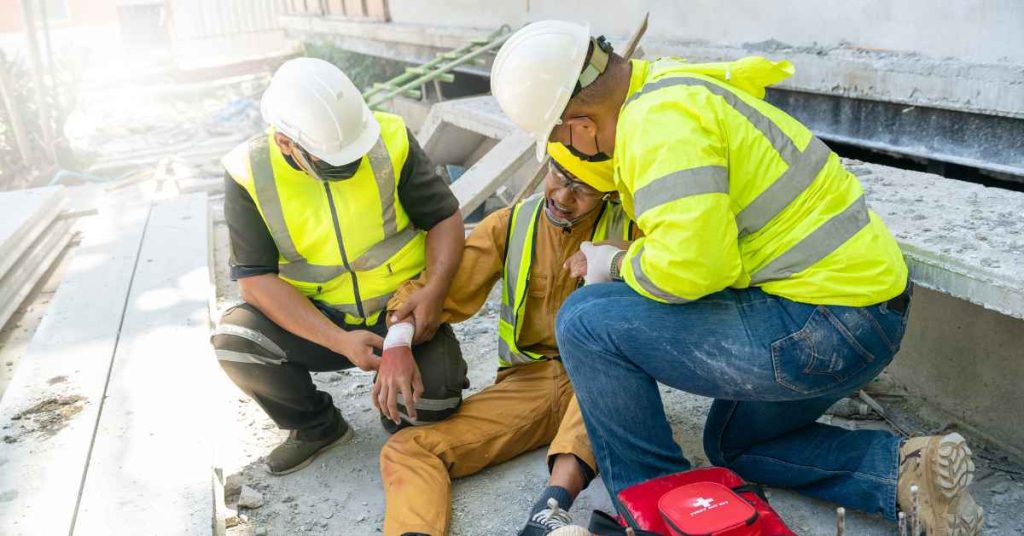
- Recognizing how aging affects the body, leading to a need for modified first aid techniques.
- Noting that older adults’ skin is often thinner and more fragile, increasing injury risk.
- Highlighting common chronic conditions in seniors like heart disease, diabetes, and arthritis, which require special attention in emergencies.
- Understanding the varied presentation of medical emergencies in seniors, such as atypical symptoms of a heart attack.
Common Injuries and Medical Emergencies in Seniors
Older adults are more susceptible to certain types of injuries and medical emergencies due to age-related physical changes and existing health conditions.
Falls are one of the most common accidents among seniors, often leading to fractures or head injuries. These incidents can be caused by factors like poor vision, balance issues, or hazards in the living environment. Medical emergencies such as strokes and heart attacks are also more frequent in this age group.
Recognizing the signs and symptoms of these emergencies is crucial. For example, a stroke may manifest through sudden weakness, especially on one side of the body, speech difficulties, or facial drooping.
Heart attacks in older adults might not always involve chest pain; they can present as unexplained fatigue, breathlessness, or even confusion. Being able to identify these signs promptly can make a significant difference in the effectiveness of the response and the overall outcome of the emergency.
First Aid Basics for Senior Care
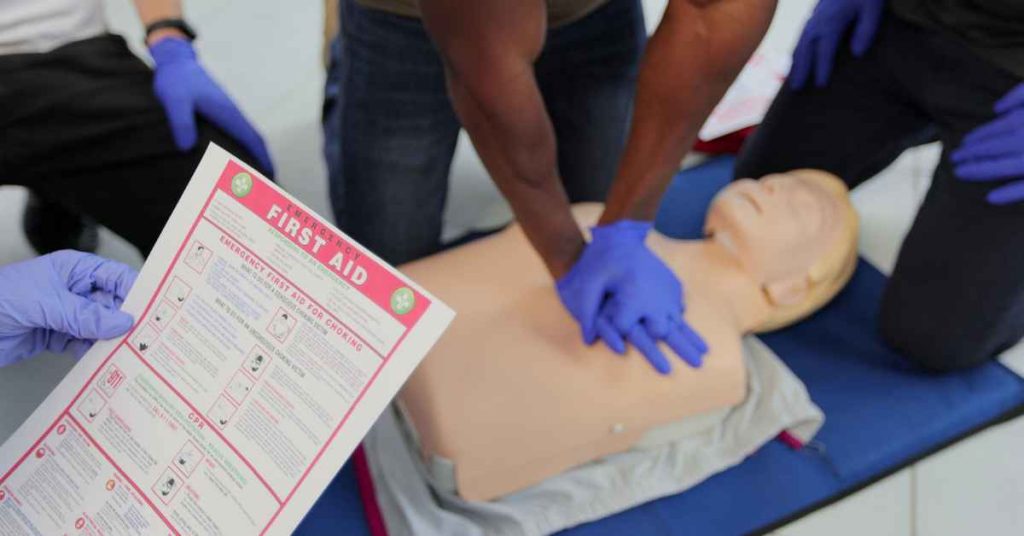
Providing first aid to seniors requires a careful and informed approach, especially when dealing with common issues such as falls, cuts, and bruises, as well as more serious concerns like choking, stroke, or heart attacks.
When a senior falls, the first step is to assess their level of consciousness and ability to move without pain. If they are injured or unable to get up, avoid moving them and call for emergency assistance.
For cuts and bruises, gentle cleaning and bandaging are key, while being mindful of thinner skin and potential for medication interactions, such as blood thinners.
Recognising and responding quickly to the signs of a stroke or heart attack – like facial drooping, arm weakness, speech difficulties, chest pain, shortness of breath – is critical. Immediate action and calling emergency services can greatly impact the recovery and survival of the senior.
- Handling Falls: Assess consciousness and mobility; avoid moving the senior if they are injured and call for help.
- Caring for Cuts and Bruises: Clean gently and bandage, considering factors like thinner skin and blood thinners.
- Stroke Signs: Look for facial drooping, arm weakness, and speech difficulties; immediate emergency response is crucial.
- Heart Attack Indicators: Be aware of chest pain, shortness of breath, and sometimes atypical symptoms like unexplained fatigue; quick action and calling for help is vital.
CPR and AED Use in Older Adults
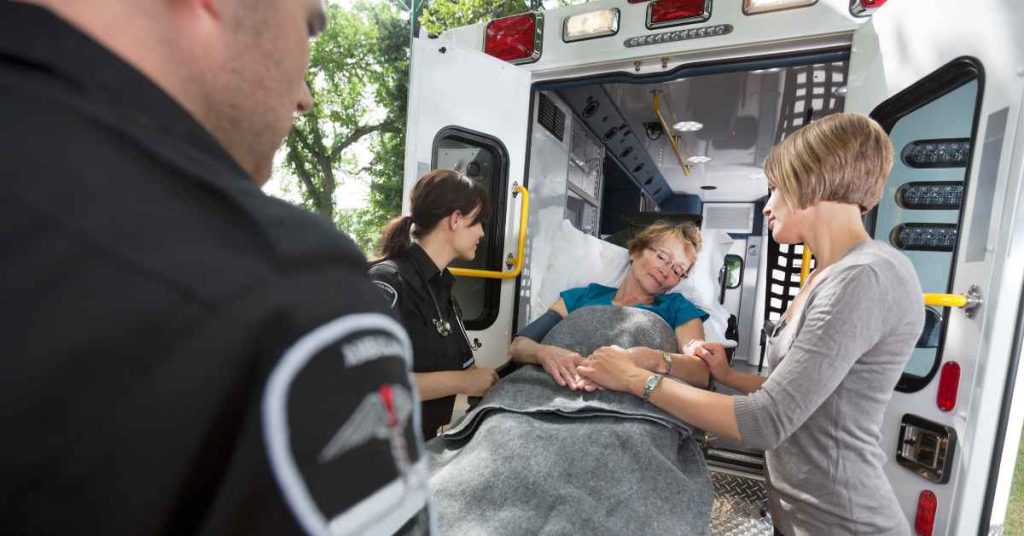
Cardiopulmonary Resuscitation (CPR) and the use of Automated External Defibrillators (AEDs) are crucial lifesaving techniques, particularly for older adults who are at a higher risk for cardiac events.
Understanding how to perform CPR on seniors is essential, as it slightly differs from the procedure for younger individuals. Due to potential for osteoporosis and other age-related conditions, chest compressions must be performed with extra care to prevent injury.
Additionally, being proficient in the use of AEDs is vital, as these devices can be life-saving in the event of a sudden cardiac arrest. AEDs are designed to be user-friendly, providing clear instructions and automatically assessing the heart rhythm to deliver an appropriate shock. Their use, combined with effective CPR, can significantly increase the chances of survival in cardiac emergencies involving older adults.
Emergency Preparedness for Seniors
Emergency preparedness is particularly crucial for seniors, especially those living alone or with limited mobility. Preparing for emergencies involves more than just knowing first aid; it also includes having essential information and resources readily accessible.
Seniors and their caregivers should ensure that a list of emergency contacts, including family members, neighbors, and healthcare providers, is easily available.
The list should also include information about any medical conditions, allergies, and medications. For those with limited mobility or living alone, it’s advisable to have a personal alarm system or a mobile phone within reach at all times to alert others in case of an emergency.
Additionally, keeping a well-stocked first aid kit and emergency supplies, such as non-perishable food, water, and extra medication, is essential. Planning ahead and being prepared can make a significant difference in effectively managing emergencies.
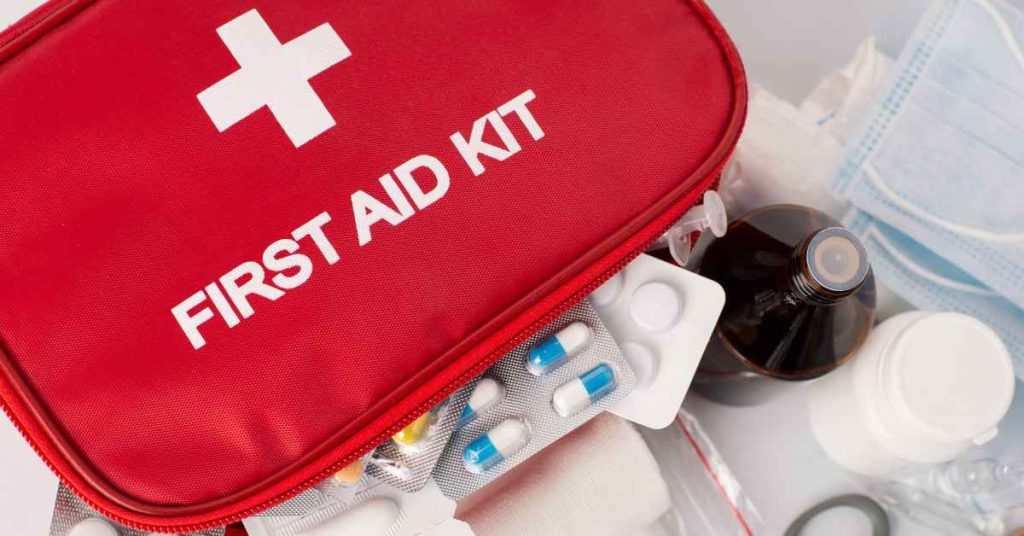
- Accessible Emergency Contacts: Maintain an easily accessible list of emergency contacts and healthcare providers.
- Medical Information at Hand: Include crucial medical information like conditions, allergies, and medications in the emergency list.
- Alarm Systems for Immediate Help: Consider personal alarm systems or keep a mobile phone handy, especially for seniors living alone or with limited mobility.
- Stocking Essential Supplies: Ensure availability of a well-equipped first aid kit and emergency supplies like food, water, and medications.
- Advance Planning: Emphasize the importance of planning ahead for different types of emergencies.
The First Aid Nest run public and workplace first aid courses, Australia wide.
Our workplace first aid courses can be run at your site.
Our public classes are here in Sydney and are the best option if you are an individual, a couple or a group
of just a few people.
Our sophisticated system will take the headache out of renewal for you too. Lose your certificate? No problem, just log in and download your certificate again anytime. We will also send you reminders about when your certificate is about to expire!
Book your spot or workplace with us today, contact us with any questions, or head to our FAQ page.
